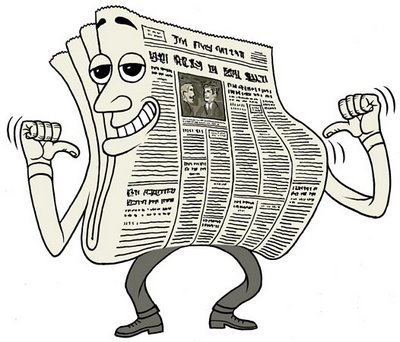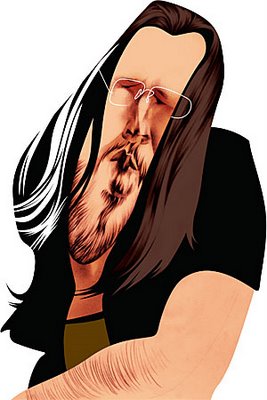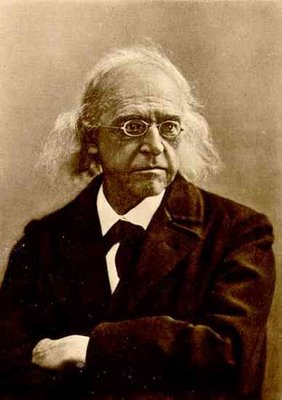
Feminism vs. femininity
In the impressive follow-up to her anti-monogamy polemic, Laura Kipnis explains why we feel a little uneasy when the possessor of a brand-new boob job proclaims, "I did it for myself."
By Laura Miller
Oct. 18, 2006 | Feminist punditry has long had a style problem. From the first, it's had a hard time separating how things ought to be from how they really are, which has undermined not only its credibility but its confidence. We all know that "no" does not always mean no, and to have to keep insisting it does over and over erodes even the speaker's faith in herself; stridency is usually a way of sounding more convinced than you actually feel, and it doesn't fool anyone. Then there's the matter of dancing through the eggshell-littered territory of contemporary feminist thinking, knowing that legions of your putative sisters are poised to thrash you for the slightest variation from their (sometimes mutually contradicting) positions. If you anger them, chances are your own life will be dragged out for intensive and merciless scrutiny. If you don't, most likely your caution has made you fatally dull.
On the other hand, for feminism's critics, every day is a field day. Whether it's a nondenominational bomb-thrower like Camille Paglia, a right-wing mouth-frother like Rush Limbaugh or a bargain-bin attack dog like Christina Hoff Sommers, it's hard not to sound like a fearless iconoclast when you're up against such mincing, mealy-mouthed good girls. Whether the good girls have a point or not becomes immaterial. Propriety, which is what too much of feminism has become, is the natural target of humor, too, and if you're funny enough often enough at feminism's expense, you can even get away with never making a coherent argument: case in point being the career of Caitlin Flanagan.
Laura Kipnis, a professor at Northwestern University best known for her provocative defense of adultery, "Against Love: A Polemic," does an impressive job of finessing this impasse in her new book, "The Female Thing: Dirt, Sex, Envy, Vulnerability." Despite the subtitle of her first book, "The Female Thing" is not the work of a polemicist -- nor does it put forth any especially innovative thoughts. Kipnis is like the intelligent woman's version of whatever Carrie Bradshaw was supposed to be on "Sex and the City." You've encountered most of the ideas in "The Female Thing" before, but Kipnis has a way of distilling them down to a well-turned sentence or two that's very pleasing. Hers isn't a gift to be taken lightly, since in the process she makes it clear how untenable many of those ideas are.
Kipnis' knack for epigrammatic sentences fills "The Female Thing" with what amount to some very high-nutrition one-liners. An example: "When it comes to murder, you're actually more than twice as likely to kill yourself as to be killed by someone else, giving weight to the old truism that you're your own worst enemy." She can be acutely funny, though (ironically) the less so the harder she tries to hit that Carrie Bradshaw sweet spot. If you read the four linked essays in this book in order -- and who are we trying to kid; you're going to read the one titled "Sex" first, like everyone else -- you'll have to cruise past a few wince-inducing references to Manolo Blahniks and terms like "the gal set," but don't let that deter you. There's plenty of steak in there, underneath the less convincing attempts at sizzle.
As Kipnis sees it, the situation that educated, middle-class Western women find themselves in is fundamentally absurd. To say so -- rather than pretending the solutions are obvious -- takes nerve. To say so with both humor and sang-froid -- unlike the legions of ethically tormented personal essayists or the pratfalling clones of Bridget Jones -- takes panache.
The absurdity comes from the disparity between our rapidly changing social landscape (including the advances of feminism) and the recalcitrant internal map Kipnis calls "the female psyche." Feminism, she writes, has collided with "an unanticipated opponent: the inner woman." The four essays in "The Female Thing" center on some of the most stubborn aspects of the inner woman, the impulses and irrational passions that suddenly rise up and swamp us despite our best efforts to stick to the designated feminist path. In fact, this rising up and swamping has happened so much in the past 30 years, and women have tried so diligently to redirect the path around the various trouble spots where it does, that by now the path itself is hopelessly muddled. It's like getting lost in the woods and following one promising little trail after another only to see it peter out in an impenetrable thicket.
Kipnis takes a modified Freudian view of this dilemma, which makes her exquisitely attuned to paradoxes. The strongest essay in the book -- "Vulnerability," which is about both sexual abuse and the fear of it -- contains two gemlike analyses of recent confessional writings by Naomi Wolf and the late Andrea Dworkin. Wolf recently favored the readers of New York magazine with a histrionic account of how, 20 years earlier, when she was one of his students at Yale, Harold Bloom put his hand on her thigh after a drunken dinner party. She presented this event -- and the refusal of Yale to address the matter when she finally decided to do something about it years later -- as a deep psychic wound.
"All this is a shade self-dramatizing," Kipnis writes, "but can we say that it's self-dramatizing in a particularly feminine way? The idioms employed have that feminist ring, but it's a genre of feminism dedicated to revivifying an utterly traditional femininity: wounded bird femininity, to borrow Joan Didion's useful formulation." Wolf's drama only makes sense (to the extent that it does make sense) when you understand that she regarded Bloom as so exalted an authority figure that she became "sick with excitement" at the prospect of meeting him, and that she expected nothing less than perfect satisfaction from Yale two decades after she failed to register a complaint. Kipnis' verdict: "this massive overinvestment in paternal figures and institutions has such an Oedipal flavor. The contradiction of Wolf-style devoted daughter feminism is its thralldom to the phallic mythos it's also so deeply offended by." That's very nicely put indeed, so well formulated that if it's not a new interpretation of this minor scandal, it might as well be. In wrestling with Dworkin's writings equating heterosexual intercourse with subjugation -- a more challenging task -- Kipnis is equally astute. "Dworkin didn't read the culture wrong: it's entirely true that all the idioms for penetration -- 'getting fucked,' 'screwed over' -- are about humiliation and exploitation. Which does make it hard to see how anyone can avoid a certain duality about the experience, even when it's pleasurable, as it often is! Dworkin is the great case study in the ambivalence of femininity: after all, she's hardly indifferent about penetration." As Kipnis notes earlier, Dworkin's key work, "Intercourse," hinged around her "wonderfully inflamed" indictment of the practice. "But," Kipnis goes on, "can there really be this much aversion without some corner of desire? The opposite of desire isn't aversion, it's indifference."
As you can see, Kipnis is a great parser of ambivalence -- and she views ambivalence as the defining condition of modern womanhood. In her essay on "Dirt" -- or, rather, about housework -- she reads a passage from Alison Pearson's novel "I Don't Know How She Does It," in which the heroine, a hedge fund executive, resentfully cleans the family kitchen at 2 a.m. after returning from a business trip. Kipnis wonders why so many women obsessively pursue a standard of cleanliness that no one else in the household considers essential. (Despite what such women will tell you, she notes, definitions of what's clean and what's not are neither universal nor unchanging.) "How is it," she writes, "that women have managed to over throw the shackles of chastity -- to cite another rather significant vestige of traditional femininity -- more easily than bondage to the vacuum cleaner?"
She suspects that at the root of this preoccupation lies the buried, primitive association of women's bodies -- and especially menstruation -- with dirt. Kipnis blames this on "the human symbolic imagination, that archaic thing, which isn't fully in sync with external realities like social progress. Maybe some day it will catch up." It probably won't if most of us remain largely unaware of its subterranean influence. "If women didn't have vaginas," Kipnis goes on to speculate, "would we take fewer bubble baths, be less susceptible to the newest cleaning product marketing campaign, let up on the cleaning standards (for those prone to occupying the household enforcer role), and simply not do more than 50 percent of the housework?" Since the vaginas are non-negotiable, the implication is it's time for an overhaul of the symbolic imagination.
In the essay on "Sex," Kipnis mostly focuses on the "erotically mismatched world we've inherited" -- at least for the heterosexual heirs. The lamentable truth is that "the procreative act" -- that is, heterosexual intercourse -- seldom results in orgasm for the female partner, only 20 to 24 percent of the time according to surveys. Kipnis cites the "feminist evolutionary biologist" Elisabeth Lloyd, who has discovered the even worse news that studies of sexual response don't distinguish between women who reach orgasm by intercourse alone and those who need additional stimulation of the clitoris as a "final push." When you subtract those women who (sorry) need a hand, "orgasm-attainment figures are so stunningly low that they seem to imply that reaching orgasm during intercourse isn't normal for the female of the species."
Kipnis compares this situation, hilariously, to "owning one of those hybrid cars that still have a few kinks to work out as your sole source of transport: the engine shuts down unexpectedly, though even when the engine's revved, it can't always be relied upon to get you where you want to go." Combined with the sexual inhibitions most cultures instill in their female members, this leads to a whopping "orgasm gap."
Even the supposedly gone-wild younger generation falls prey to this inequity. Kipnis writes that young women have described themselves as "participating enthusiastically in hookup culture -- one-night stands and booty calls," then complain that "the men involved 'don't care if you're getting off or not.' Yet these girls keep hooking up with them! Without even getting dinner for it! Welcome to the new femininity -- at least under the old femininity, you got taken to dinner." In response to reports from sex researcher Shere Hite, who has interviewed women claiming to enjoy "'emotional orgasm ... an intense emotional peak' followed by feelings of closeness," Kipnis quips, "There's a name for someone who would call that an orgasm: female."
Kipnis sees the current mommy wars as an echo of the old "vaginal-orgasm-versus-clitoral-orgasm dichotomy," in which women who could only climax with clitoral stimulation were told they were insufficiently adapted to their true, natural role as women. "To begin with," she writes, "we have the same cast of characters: the womanly other-directed type versus the masculine-identified striving autonomous type. And in both cases, a socially organized choice masquerades as a natural one, manufacturing a big dilemma where one doesn't really have to exist."
For although Kipnis is willing to admit that some parts of the female psyche have proven ferociously resistant to change, she doesn't think that the situation is intractable. For all her puncturing of feminism's sanguine notions about the malleability of human nature, she doesn't believe that the deep layers of the "symbolic imagination" are hard-wired. Sociobiologists and evolutionary psychologists may be "the go-to guys of the moment when it comes to thorny questions about human nature and gender roles," but they've yet to come up with a convincing justification for the perverse configuration of the female orgasm, for instance. "This is the crowd," she writes, "who likes to tell us how men and women got to be who they are (and will remain for all eternity) by supplying colorful stories about the mating habits of our hominid ancestors and selected members of the animal kingdom," making the usual comparison to Rudyard Kipling's "Just So Stories" -- fables about how the leopard got his spots, and so on.
Kipnis' is an exceptionally sensible voice at a time when people seem to believe that any long-standing cultural norm that can't be completely overhauled in a single generation must therefore be indelibly carved on the stone tablets handed down to Charles Darwin at the foundation of the modern world. And for all her low-key Freudianism, she knows when it's time to follow the money instead of the unconscious. During all the foofaraw about the "opt-out revolution" -- those young, Ivy-League women who are now abandoning the career track to be stay-home moms -- haven't you been wishing someone would say exactly this: "Somehow, as highly educated as these girls are, they don't seem to have heard about the 50 percent divorce rate! Somehow, they imagine that their husbands' incomes -- and loyalties -- come with lifetime guarantees, thus no contingency plans for self-sufficiency will prove necessary ... Somewhere Betty Freidan must be cackling..."
In the first essay, "Envy" -- which is not about catfights, but rather about all the things that men have and women want -- Kipnis asks us to consider the slowly closing gender gap when it comes to pay equity. If you look carefully, she points out, you'll see that "women's wages are up to 80 percent of men's because male wages are down, which evens things out. It looks as though the dirty little secret of the last 30 years is that the job market played women off against men to depress pay." While the sexes rage at each other about dating ethics and dirty socks, somebody (probably that little Monopoly guy with the top hat and cigar) has been laughing all the way to the bank.
Perhaps the most daring statement in "The Female Thing" comes in this first essay. Kipnis observes that even so acclaimed a feminist spokesperson as Eve Ensler, creator of "The Vagina Monologues," can turn around and do an entire stage show about how much she hates her belly. "Ensler works herself into intellectual knots trying to come to terms with these painful body insecurities," Kipnis writes, "but there's a simple explanation for the dilemma she can't quite decipher, which is that feminism and femininity just aren't reconcilable." Think about that one for a moment and consider how much an entire school of tortured female rumination hangs on the avoidance of this insight. "Though if internal gymnastics burned calories," Kipnis adds, "we could all have flatter stomachs, with far fewer hours at the fucking gym."
Femininity -- which Kipnis defines as "tactical: a way of securing resources and positioning women as advantageously as possible on an uneven playing field, given the historical inequalities and anatomical disparities that make up the wonderful female condition" -- seeks to ameliorate all these disadvantages by "doing what it took to form strategic alliances with men." But that means that femininity "hinges on sustaining an underlying sense of female inadequacy," which puts it in opposition to the goals of feminism. No wonder we feel a little uneasy when the possessor of a brand new boob job proclaims, "I did it for myself." I believe this is what Marx called false consciousness.
Scolding other women for failing to embody (literally) an appropriately feminist outlook has never really worked, and Kipnis doesn't seem the type to interrupt yet another rousing chorus of "I Enjoy Being a Girl," even if she felt like it. (I don't think she does.) Instead, she's suggesting that we stop lying to ourselves by pretending we can run with the rabbits and hunt with the hounds. No girl should ever be surprised upon finding herself in that archetypal Carrie Bradshaw position of realizing that with all the cash she spent on ruinously expensive and joint-grinding high heels she could instead have bought a roof to put over her head. (That's the revelation that comes right before you learn you need knee surgery.) Don't say nobody ever warned you.





